Complaint letter to estate agent template
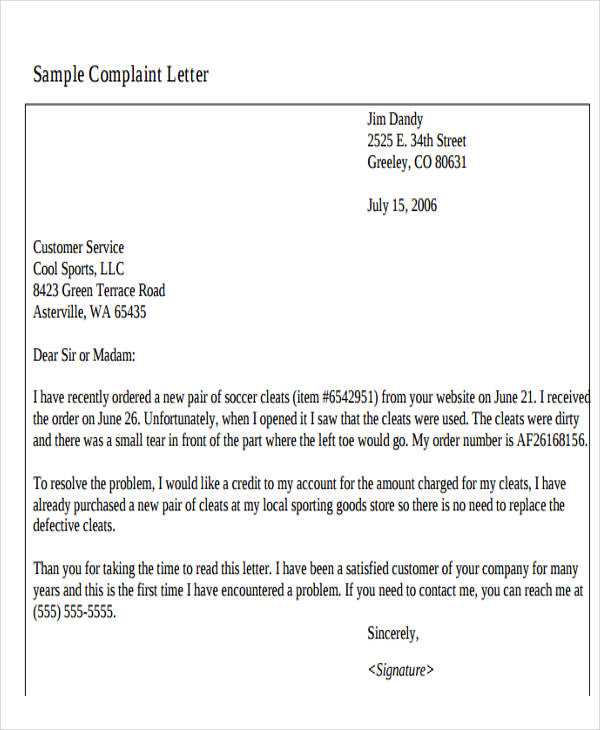
Start by addressing your letter directly to the estate agent, making sure to use their full name and correct title. In the first paragraph, briefly state the purpose of your letter: a formal complaint about an issue related to their services. Make sure to include specific details such as the address of the property in question and any relevant dates that could help clarify the situation.
In the next section, describe the problem in detail. Focus on the facts without emotional language. Mention any actions you have already taken to resolve the issue, such as phone calls, emails, or meetings. Clearly outline what has gone wrong and how it has affected you as a tenant, buyer, or seller.
Provide a clear and reasonable request for what you expect as a resolution. Whether it’s fixing a problem, providing a refund, or addressing a particular issue, be specific about what you want. If applicable, reference any legal or contractual obligations that the estate agent has failed to meet. Keep the tone polite but firm.
Conclude by stating your willingness to discuss the matter further, and include your contact details for follow-up. Close the letter with a polite but assertive closing, ensuring that your expectations are clear. Don’t forget to sign off with your name, and consider including any supporting documents if necessary.
Here’s the revised version with minimal repetition:
If you’re writing a complaint letter to an estate agent, begin by addressing the main issue clearly. Use a polite but firm tone to ensure your concerns are understood. Specify the problem, whether it’s regarding property conditions, agent behavior, or lack of communication. Highlight any details that support your case, such as dates, names, and previous conversations.
For example, you might say: “I am writing to express my dissatisfaction with the recent delay in addressing the issues reported on January 5th concerning the leaking roof in the property at 123 Main Street.”
Next, request a specific resolution. Be clear about what you expect from the estate agent. For instance, you could ask for an immediate inspection, repair, or compensation. Be reasonable but assertive in your request.
Close the letter by offering a chance for follow-up. Provide your contact details and a clear deadline for their response. Express your hope for a swift resolution and thank them for their attention to the matter.
Here’s how you might end: “Please let me know how you plan to resolve this issue by February 5th. I can be reached at [phone number] or [email]. I appreciate your prompt attention to this matter.”
By following this structure, your letter will convey your concerns effectively without being overly repetitive. Keep the tone respectful, yet assertive, to encourage a positive response.
- Complaint Letter to Estate Agent Template
Clearly state your issue in the first paragraph. Focus on the facts without adding emotions. For example, mention missed appointments, poor communication, or unaddressed concerns. Be specific about dates, times, and the nature of the problem to make your complaint easy to understand.
Provide supporting details in the next section. Describe how the agent’s actions (or lack thereof) impacted you. For example, did a delayed response cause inconvenience or financial loss? Attach any documentation, such as emails or receipts, that might help illustrate the situation.
Clearly state what resolution you expect. Whether you want a full refund, a change in property listings, or another solution, be direct. Specify a time frame in which you expect a response to show that you are serious about resolving the matter.
| Section | Details |
|---|---|
| Issue Description | Provide clear details of the complaint, including dates, missed appointments, or unaddressed queries. |
| Impact | Explain how the issue affected you, such as missed opportunities or inconvenience caused. |
| Expected Outcome | State what action you want the agent to take, along with a specific deadline for resolution. |
End the letter with a polite request for resolution and a reminder of your expectations. Keep a professional tone, even if you are frustrated. This increases the chances of your complaint being taken seriously and handled quickly.
When writing a formal complaint to your estate agent, address them directly and respectfully. Start by using their full name and official title, such as “Dear Mr. Smith” or “Dear Ms. Johnson.” This sets a professional tone for your communication. If you are unsure of the agent’s full name, look up their details on the agency’s website or contact the office to confirm. If addressing an entire team, use “Dear [Agency Name] Team” or “Dear [Agency Name] Representative.”
Be Clear and Direct

Clearly state the issue you are facing without ambiguity. For example, “I am writing to express my concerns about the delay in processing my rental application.” Avoid long, complex sentences that might dilute the message. Stick to the facts, explaining your issue with as much detail as needed while keeping it concise.
Use Polite and Courteous Language
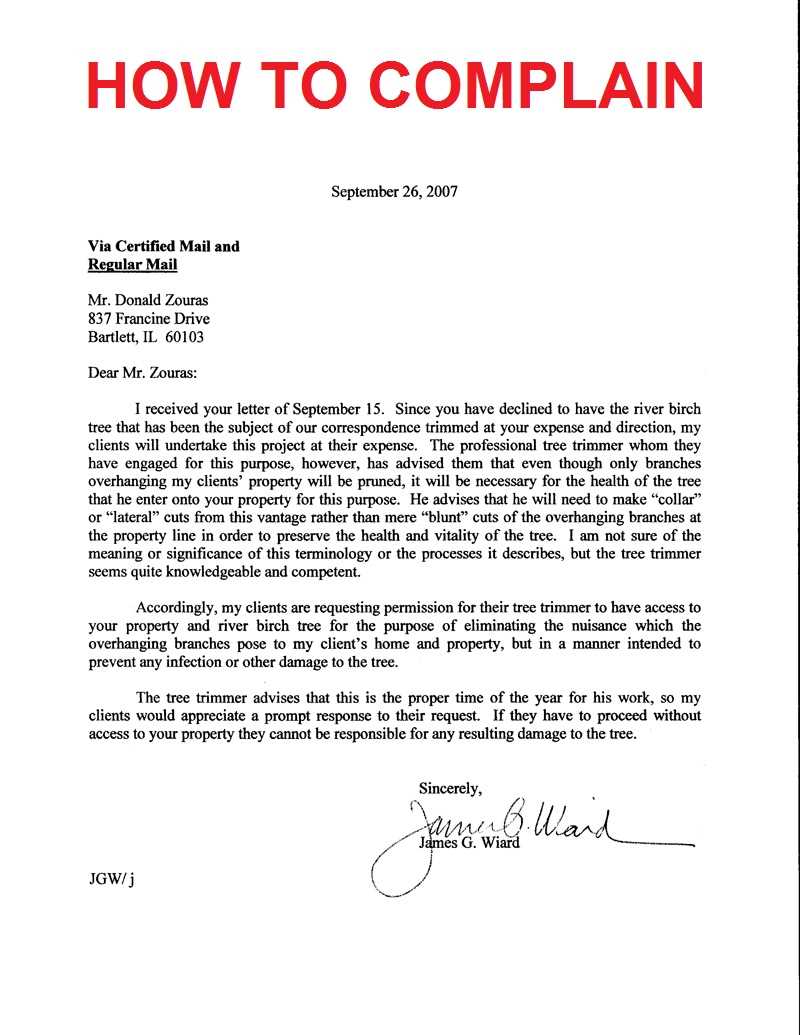
Maintain a respectful tone throughout your letter. Even if you are upset or frustrated, avoid harsh language. Express your dissatisfaction without resorting to insults or threats. This will help keep the conversation focused on resolving the issue and increase the likelihood of a positive response.
Make sure to provide specific details to back up your complaint and give the estate agent a clear understanding of your issue. Below are key elements to include:
- Your contact details: Include your full name, address, phone number, and email so the estate agent can reach you easily.
- Property details: Mention the address of the property in question to avoid confusion and ensure the issue is linked to the correct location.
- Date of the incident: Specify the date or range of dates when the issue occurred. This helps establish a clear timeline.
- Description of the issue: Detail the problem concisely. Include any relevant facts such as the condition of the property, the service you received, or the lack of response from the agent.
- Steps taken to resolve the issue: Outline any prior communications or actions you have already taken to address the problem. This shows you’ve made an effort to resolve the situation.
- Your expectations: Clearly state what you are expecting from the agent as a resolution, whether it be a refund, repair, or another form of compensation.
- Attachments (if applicable): If you have supporting documents like photos, emails, or agreements, attach them to strengthen your case.
Providing these details will ensure your complaint is well-structured and will be taken seriously by the estate agent.
Focus on key details. Clearly state what went wrong, where the problem occurred, and how it affects you. For instance, specify whether the issue is with a broken appliance, a safety concern, or a missed service. Avoid unnecessary explanations or background information that doesn’t directly relate to the complaint.
Use simple language. Stick to straightforward terms to ensure your message is understood. Instead of saying “the condition of the plumbing system could potentially cause problems,” simply state “the plumbing leaks and causes water damage.” This keeps your letter concise and clear.
Provide dates and times. Mention specific incidents or observations with accurate timing, such as “the heating stopped working on January 15th at 4 PM.” This adds clarity and shows the timeline of events, helping the agent understand the issue better.
Avoid emotional language. Focus on the facts, not how you feel about the situation. Rather than saying “I’m incredibly upset that this is happening,” express the issue directly, like “the bathroom sink has been leaking for two days and has caused water damage.” This keeps the tone professional.
Offer a suggestion for resolution. Instead of simply listing complaints, indicate how you’d like the issue to be addressed. For example, “I would appreciate it if the heating could be repaired within the next 48 hours.” This sets clear expectations for how the agent can resolve the problem.
Maintain a polite and respectful tone throughout your letter. Address the recipient courteously, using their title and surname where appropriate. Avoid emotional language, even if you’re frustrated. Focus on facts, providing clear details about your concerns without sounding confrontational. Keep your sentences concise, but also ensure they reflect the seriousness of the issue. An approach that is direct yet polite will likely prompt a constructive reply.
Be assertive but not aggressive. Express your expectations clearly, such as asking for a specific resolution or response time. Make sure your tone shows you expect a professional outcome, but avoid sounding demanding or inflexible. A well-balanced tone encourages the agent to engage positively with your concerns.
Offer a solution if possible, framing it as a suggestion rather than a demand. This shows you’re open to collaboration and resolution. Maintain a professional demeanor throughout, even when the issue at hand is upsetting, as this helps in getting the response you need without escalating tensions.
If you haven’t heard back after your initial complaint letter, follow up with a clear and polite reminder. Wait at least a few days before sending your follow-up to give the agent enough time to respond. In your message, politely reference your original complaint and request an update on the status of your case.
Keep it Brief and Direct
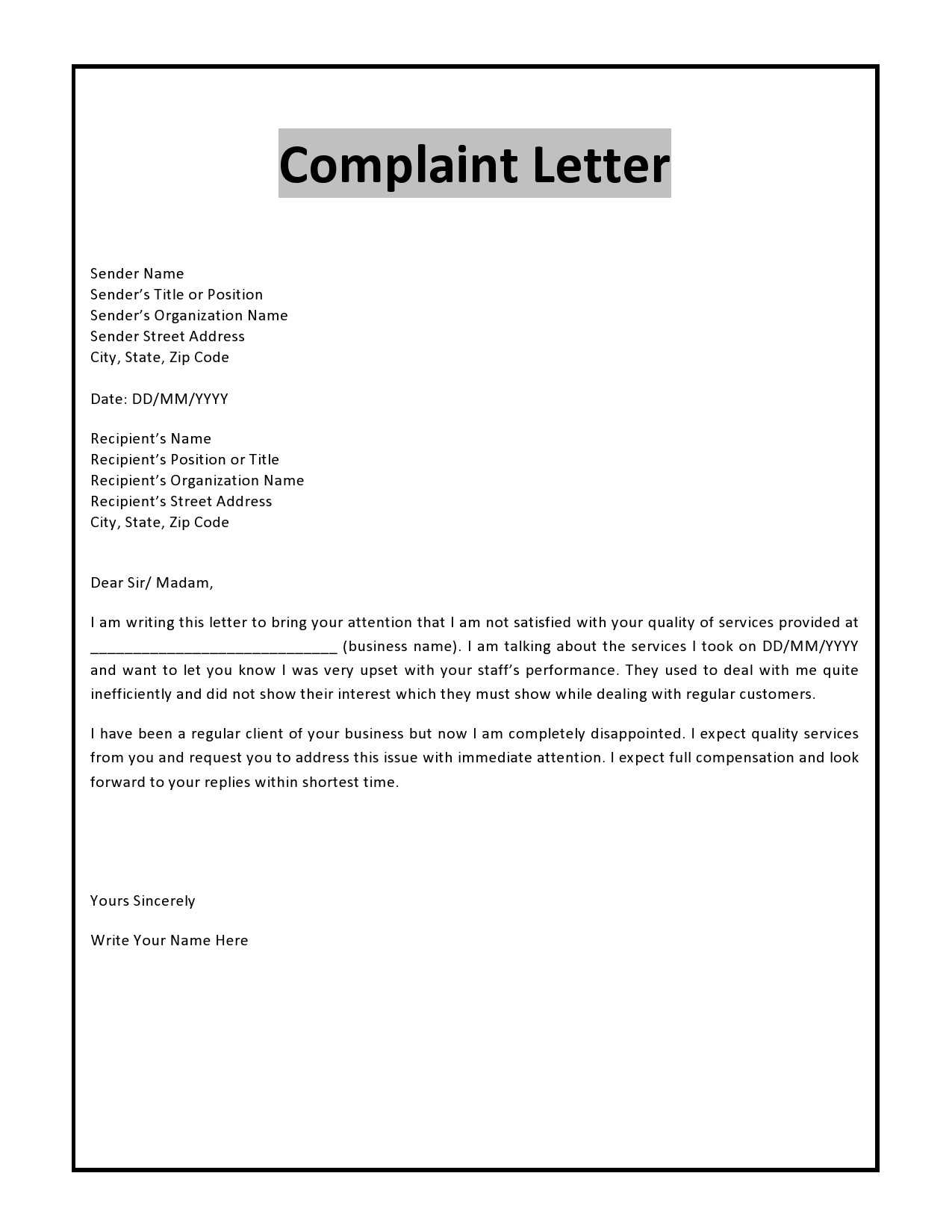
Your follow-up email should be concise. Include relevant details from your previous correspondence to help the agent quickly identify your case. State that you are awaiting a response and would appreciate an update on the situation. Avoid lengthy explanations or sounding overly impatient.
Provide Contact Information
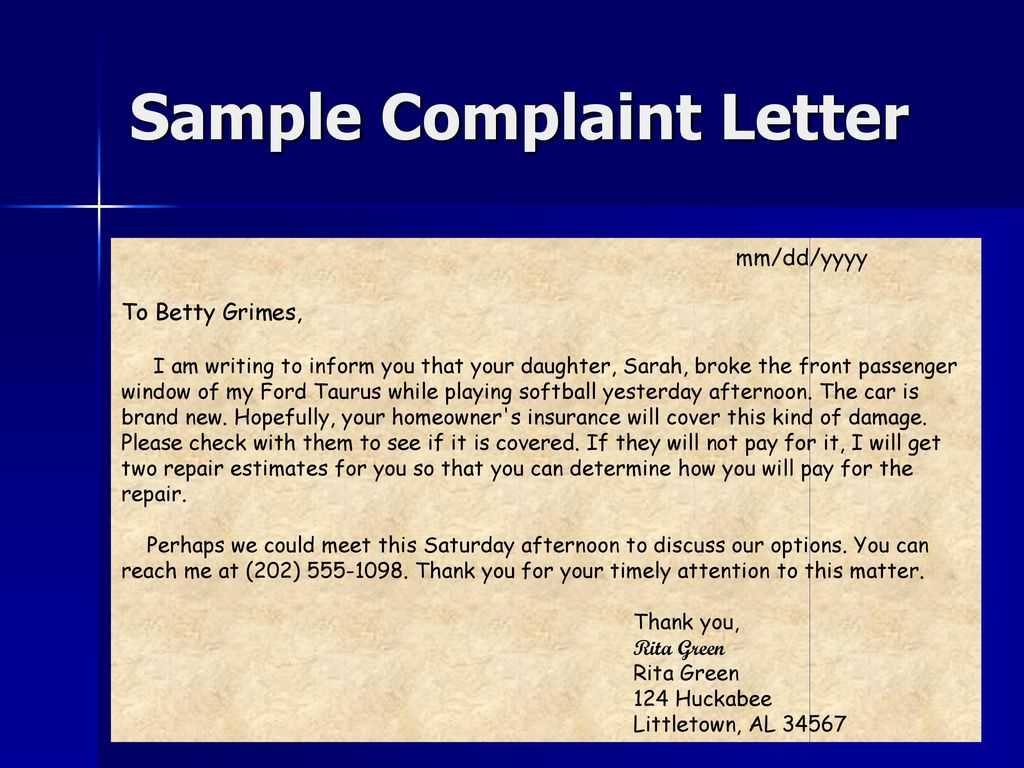
Make sure your contact information is included in the follow-up so the agent can respond without delay. If possible, offer a phone number where they can reach you for a quicker resolution. Keep the tone friendly and professional to maintain a positive relationship.
If your issue remains unresolved after contacting the estate agent, take the following steps:
1. Follow Up in Writing
2. Contact a Higher Authority
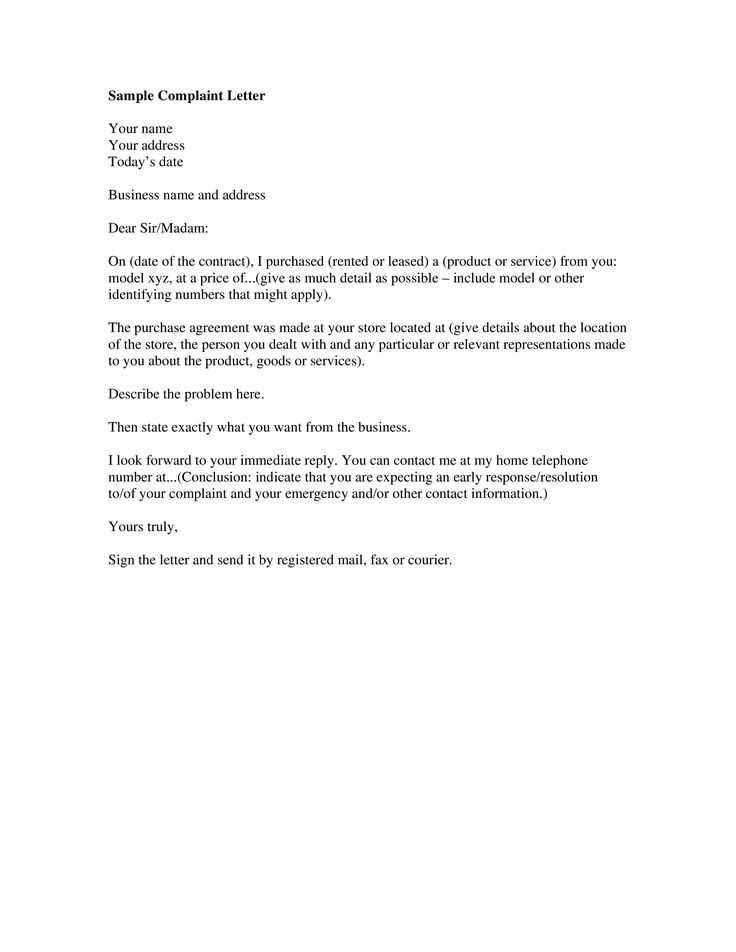
If the agent does not respond or fails to resolve the issue, reach out to their supervisor or the agency’s management. This escalates the matter and can often prompt quicker action.
In cases where the matter remains unresolved despite these efforts, you may want to seek external assistance, such as contacting a professional regulatory body or ombudsman. They can review your case and provide further guidance on how to proceed.
Each word is repeated no more than two to three times, the meaning is preserved.
Start by clearly outlining the issue in your letter. Include the date of the problem’s occurrence, relevant property details, and any previous communication with the estate agent.
- State the exact nature of the complaint.
- Provide supporting evidence, such as photos or emails.
- Clearly explain how the situation has affected you.
Express your expectations for resolution. Be specific about what you expect from the estate agent, such as repairs, financial compensation, or other forms of assistance.
- Request a timely response, specifying the desired timeline for resolution.
- Include a polite but firm request for follow-up communication.
End your letter professionally. Thank the agent for their attention, but make it clear that you expect prompt action.